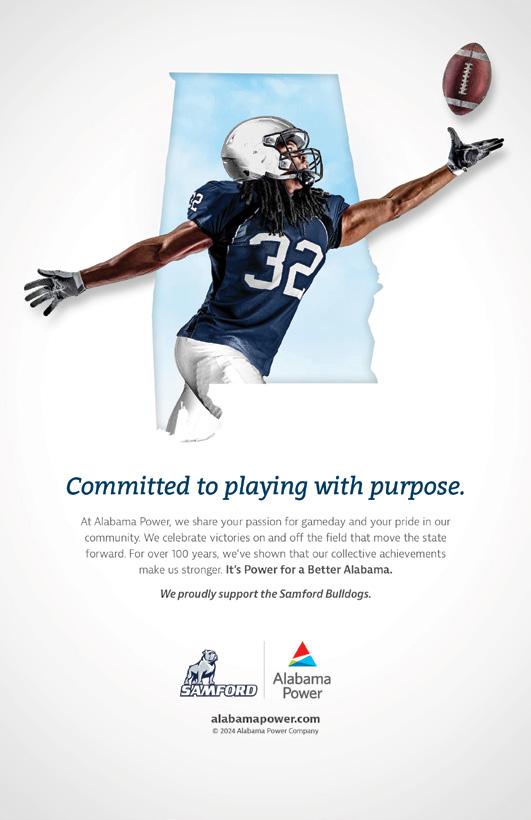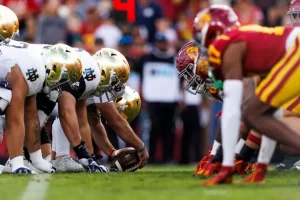
Alabama’s Academic and Athletic Excellence: How High GPAs Fuel Championship Culture On and Off the Field
The University of Alabama has long been a dominant force in college football. With multiple national championships and a consistent presence in the top rankings, it’s easy to point to on-field talent, elite recruiting, and legendary coaching as the backbone of the program’s success. But there’s a less flashy, more disciplined foundation to Alabama’s championship culture—its commitment to academic excellence.
Once considered a secondary concern for major athletic programs, academics are now an integral part of Alabama’s winning formula. The Crimson Tide have cultivated a culture where high GPAs are not just encouraged—they’re expected. This commitment to the classroom is more than a public relations move; it’s a strategic pillar that helps Alabama remain at the top of college football year after year.
In recent years, Alabama’s football team has consistently recorded team GPAs above 3.0, an impressive feat considering the intense time demands of playing for a perennial national title contender. In the 2024 fall semester, for instance, over 85 student-athletes on the football team earned a GPA of 3.0 or higher, with more than 40 making the Dean’s List (GPA of 3.5 or higher).
This trend is no accident. It’s the result of intentional leadership from head coach Nick Saban, his successor Kalen DeBoer, academic advisors, and support staff who prioritize education with the same rigor as playbooks and film sessions. Alabama doesn’t just recruit great athletes—they recruit student-athletes who are disciplined, goal-oriented, and capable of balancing rigorous schedules.
When Coach Saban was at the helm, he often emphasized that developing the “whole person” was key to building a winning team. That philosophy didn’t leave the building with him. Under Coach DeBoer, Alabama continues to push its players to excel academically, not only because it’s the right thing to do, but because it creates better athletes in the long run.
“Discipline is discipline,” DeBoer has said. “The habits you form in the classroom directly translate to how you prepare, how you study film, how you recover, and how you perform under pressure. That’s why we emphasize academics so much. It’s not separate from football—it’s part of it.”
Players are held accountable for their performance off the field just as much as they are for their stats. Mandatory study halls, grade checks, tutoring sessions, and academic mentoring are embedded into the weekly schedule. The message is clear: greatness in the classroom breeds greatness on the field.
Only a small percentage of college football players make it to the NFL, and Alabama knows this. By investing in academics, the university ensures its athletes are prepared for life after football. Whether they go on to careers in coaching, business, education, or entrepreneurship, Alabama players leave with more than a highlight reel—they leave with a degree and a solid academic foundation.
In fact, the Alabama Athletics Department offers comprehensive career development programs, including résumé building, job interview preparation, and professional networking events. Former Tide players often credit these programs with helping them transition into successful post-football careers.
Several Alabama players have become shining examples of what it means to be a true student-athlete. In recent years, players like Will Anderson Jr., Bryce Young, and Christian Harris have made headlines not only for their dominance on the field but also for their achievements in the classroom.
Take Bryce Young, for example. The 2021 Heisman Trophy winner maintained a GPA above 3.5 while majoring in Communication Studies. Young frequently spoke about the importance of time management and how his academic discipline helped him become a better quarterback. “You have to study the game the same way you study for a test,” he said. “You can’t cut corners in either one.”
This mindset has become contagious in the locker room. Veterans mentor younger players, not only in practice drills and workouts but also in study habits and academic priorities.
There’s a growing recognition in the football world that intelligence is a competitive advantage. Smart players make fewer mistakes, adjust more quickly to complex game plans, and often become leaders both vocally and by example. High GPA players tend to have strong attention to detail, which is critical in a sport where one missed assignment can change the outcome of a game.
In Alabama’s system, where playbooks can be as complicated as a college-level physics course, cognitive ability isn’t optional—it’s essential. Players are expected to learn, adapt, and think critically on the fly. Academic performance often correlates with football IQ, and Alabama leverages that correlation to its advantage.
The result? Fewer penalties, better situational awareness, and a team full of athletes who understand not only their role but the entire scheme.
Success in academics isn’t just an individual effort—it’s a team-wide mission. Alabama players push each other in the classroom just like they do in the weight room. Academic honors are celebrated at team meetings. The same pride that comes from scoring a touchdown or making a key defensive stop applies to earning a 4.0 GPA.
In 2025, the team introduced a new internal award system that honors the highest GPA in each position group. These honors are announced weekly and come with perks like front-row seating in team meetings or first dibs on gear drops. It may sound minor, but it reinforces the idea that academic performance is part of the team’s success.
When academic goals are woven into the team culture, everyone benefits. Tutors and advisors become part of the extended coaching staff, and academic wins are shared just like game victories.
Alabama doesn’t just look at highlight tapes when recruiting—they look at transcripts. Academic character is often a tiebreaker between prospects. In a competitive recruiting landscape, Alabama stands out by targeting players who are high achievers across the board.
This strategy isn’t just about avoiding eligibility issues—it’s about building a locker room full of accountable, driven individuals. Recruits are told early in the process that academic standards will be enforced from day one. Those who buy in are often the same ones who become leaders on and off the field.
This approach also helps with retention. Players who are invested academically tend to have stronger ties to the university, are less likely to transfer, and are better prepared to handle adversity.
As Alabama gears up for another season, its academic momentum shows no signs of slowing. The team GPA continues to rise, and graduation rates are among the best in the SEC. These accomplishments aren’t just metrics for media guides—they’re critical indicators of program health.
What Alabama understands better than most is that football isn’t just about Saturday afternoons in the fall. It’s about developing well-rounded individuals who succeed in every arena. The discipline, effort, and accountability required to earn a high GPA mirror the traits needed to win national championships.
This seamless connection between academics and athletics isn’t just a coincidence—it’s the Tide’s secret weapon.
For recruits considering Alabama, the message is clear: If you want to be the best, you have to commit to excellence in all areas. That means showing up for early-morning lifts and late-night study sessions. It means embracing the grind of game preparation and group projects. It means pursuing greatness without compromise.
Alabama doesn’t promise an easy path. It promises a transformational one.
In a college football world often dominated by talk of NIL deals, transfer portals, and flashy commitments, Alabama remains rooted in the fundamentals: work ethic, discipline, and character. That foundation starts in the classroom, where lessons learned today build champions tomorrow.
As the Crimson Tide prepare for yet another run at the College Football Playoff, they do so with a roster full of scholar-athletes who understand that success is never one-dimensional. They’ve raised the bar—not just for what a football player can achieve on the field, but for what a student-athlete can become when they embrace the full opportunity of a college education.
At Alabama, GPA isn’t just a statistic—it’s a symbol of who they are. The standard is the standard, and for the Crimson Tide, that standard is excellence.





